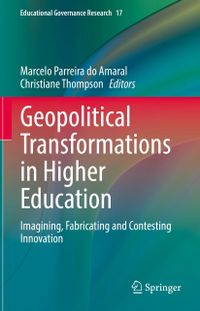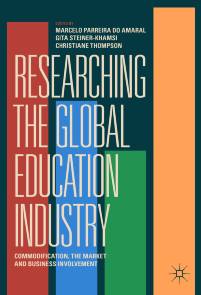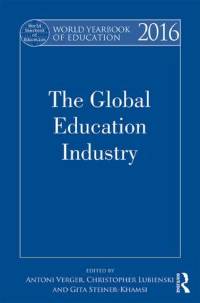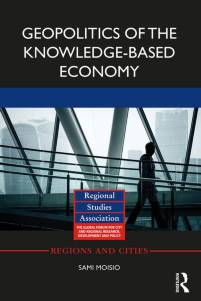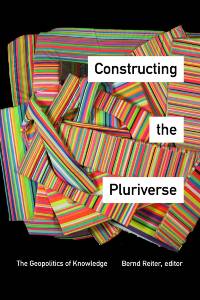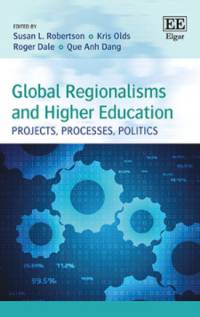A (new) Geopolitics of Knowledge?
Innovation, science and education reshaping individuals, society and the economy
Symposium
University of Münster, Münster, Germany
Alexander-von-Humboldt Haus, July 11-12, 2019
Outline
The idea that we live in global knowledge societies and knowledge-based economies or that present-day productive systems constitute an industry 4.0 have gained currency as descriptions of contemporary society that are said to bear direct and indirect consequences for political, economic, and social orders. In this context, innovation, science and education are central themes in contemporary discussions about the future of modern societies. Innovation is enthusiastically embraced as the panacea for all sorts of societal issues of our times; science is equally deemed to play a decisive role in solving current problems and in heralding a bright future with more wealth and more welfare for all citizens; education is conferred the task to producing individuals equipped with both skills and competences considered key to innovation but also displaying the attitudes and dispositions that will secure continuous innovation and economic growth.
High-level policy interest parallels this enthusiasm placing knowledge and knowledge generation activities centerpiece in imaginations of the future, for instance, under the EU’s strategies of creating the most competitive global knowledge-economy and becoming an Innovation Union. Innovation, science capacity and education thus are reckoned key to succeeding in global economic competition. Educational and research institutions have become an idée fixe, a constant topos in the imaginations of knowledge-intensive capitalism and of how they are to contribute to innovation and economic growth. Higher education is central to the realization of this vision and invoked as the prime locus of production both of (proprietary) knowledge (such as patents, innovations of all kinds, etc.), of innovative learning environments, and not least of human capital and associated subjectivities that will drive innovation. In geopolitical terms, education and research are seen as assets that play a central role as generating both value and comparative advantages in the (imageries of) global competition, competitiveness and transnational value chains. They are placed at the forefront of developments that are arguably reshaping individuals, society and economy.
The Symposium explores these developments in terms of changing relations between society, economy, science and individuals. A key concern is to explore how they are constituting a (new) geopolitics of knowledge, in which innovation, science and education become key features of the strategic global positioning of individuals, companies, regions and states. The Symposium will explore these questions and their actual implications for individuals, research infrastructures, as well as for teaching and learning environments from a comparative perspective. It will then consider the futures that these developments imply and promise, whilst opening up lines of thought that might bring other alternatives into play.
From a comparative perspective, the Symposium looks into whether (and how) the ways in which innovation, science and education reshape individuals, society and economy differ in different social/institutional environments. In particular, the following facets will be debated:
- the geopolitical imaginations and the implications for the role and validations of science and education as they are framed by, and integrated in, politico-economic projects of innovation; the implications of these framings in particular for social science and education research, for instance, in terms of epistemology or epistemic governance;
- the learning environments as well as sites and modes of knowledge production that are said to nurture the skills and competences driving innovation and economic growth; the implications for the institutional infrastructures, such as the diversification and hierarchization of the institutional infrastructure of research and teaching;
- the archetypal subjectivities that are to be produced—innovative, entrepreneurial, connected—and the deployed governmental technologies; the implications of these developments for individuals in general and for academic careers in particular, including their impact on working conditions on academic personnel.
Participants and Format
This Symposium offers a unique occasion to explore these questions in depth with internationally renowned scholars from different fields and working in varied settings.
Participants shall give short presentations (15-20 minutes) based on a paper submitted 3 weeks prior to the Symposium. Papers presented will serve as the basis for chapters in an edited book (possibly added by further contributions). Travel and accommodation costs will be covered by the organizers.
Further information: http://www.geopolitics-of-knowledge.eu
The Conference Venue
University of Münster
Institute of Education
Alexander-von-Humboldt Haus
Hüfferstrasse 61,
48149 Münster, Germany
Participants
Prof. Dr. Pepka Boyadijeva, Bulgarian Academy of Sciences, Bulgaria
Prof. Dr. Eva Hartmann, Cambridge University, United Kingdom
Prof. Dr. Xavier Rambla, Autonomous University of Barcelona, Spain
Prof. Dr. Sami Moisio, University of Helsinki, Finland
Prof. Dr. Justin Powell, University of Luxembourg, Luxembourg
Prof. Dr. Christiane Thompson, University of Frankfurt, Germany
Dr. Mike Zapp, University of Luxembourg, Luxembourg
Prof. Dr. Francisco O. Ramirez, Stanford University, USA
Organizing Team
Prof. Dr. Marcelo Parreira do Amaral, University of Münster, Germany
Marvin Erfurth, University of Münster, Germany
Prof. Dr. S. Karin Amos, University of Tübingen, Germany


